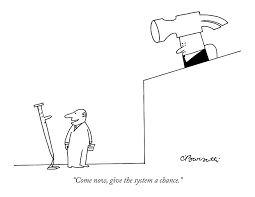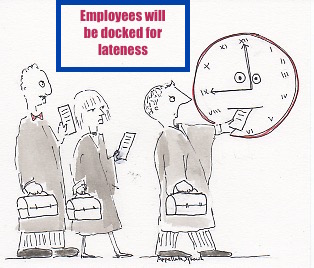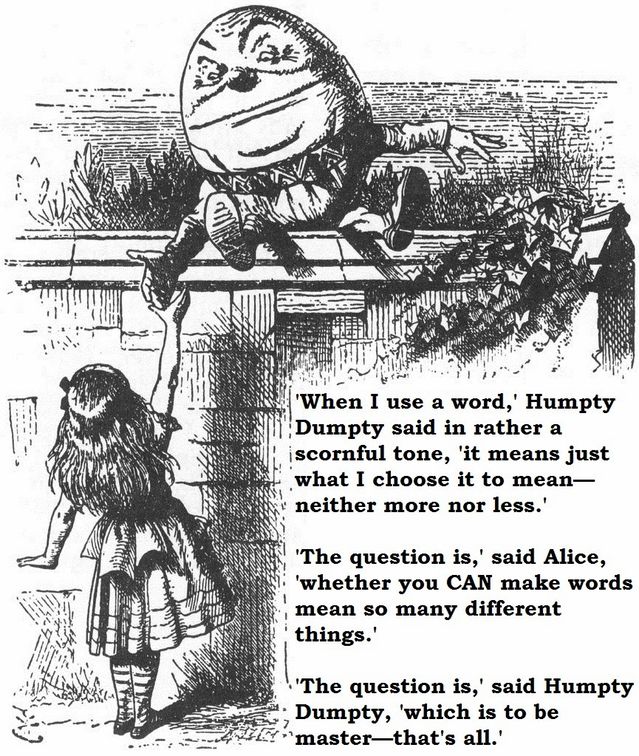Whenever a court invokes the old saw that constitutional rights can’t be stopped at the prison gate, it’s even money that the court is just about to do exactly that. The latest is the 11th Circuit’s upholding of the Florida Department of Corrections’ (FDOC) total ban on the magazine Prison Legal News (PLN). A sample of the current issue reveals what a security-threatening incendiary rag it is:
- In the Eye of the Storm: When Hurricanes Impact Prisons and Jails, by Matthew Clarke
- North Carolina Woman Attempts Bail Bond Scheme from Inside Jail, by Monte McCoin
- Porn Reading Rooms in Iowa Prisons Placed on Legislative Hit List
- U.S. Coast Guard Operating Inhumane Floating Prisons, by Christopher Zoukis
- Wrongful Death Case Against New York Jail Settles for $101,500, by Derek Gilna
- Nebraska Sheriffs Profiting from Jail Phone Contracts, by Christopher Zoukis
- Phony New York Lawyer Defrauds Prisoners, Sent to Prison, by Edward Lyon
- North Dakota: Altered Pencil in Prison Results in Weapon Possession Conviction
- Pro Se Rhode Island Prisoner Wins First Amendment Settlement, by Derek Gilna
- Oklahoma Lawmaker Introduces Bill to Lift Prison Smoking Ban, by Monte McCoin
- Major Wage Ratio Gap Between Executives, Employees at Private Prisons, by Steve Horn
- Former Michigan Prisoner Receives Over $817,000 for Wrongful Conviction
- Virginia Federal Court Holds Nation of Gods and Earth is a Religion
- Dying Prisoner’s Complaint Alleged Claim for Failure to Treat Hepatitis C
- Federal Lawsuit Filed Against Oklahoma Sheriffs – All of Them, by Derek Gilna
- Ohio: $75,000 Settlement Reached after 60-Year-Old Woman Body Slammed by Jail Guard, by Christopher Zoukis
- Newspaper Investigation Reveals Significant Problem with Life Sentences in Arizona, by Christopher Zoukis
- California: Governor Signs Bill to Block Expansion of For-profit Detention Centers, by Dale Chappell
- Washington Prisoner’s Negligence Suit Settles for $75,000
- Justice Department Failing to Assess Prison Population Reduction, Clemency and Reentry Programs, by Christopher Zoukis
- Alabama: State Agencies Have Absolute Immunity in a Court of Law or Equity
- Confusion Over Insanity Defense Leads One Jury to Issue Two Verdicts in Triple Murder, by Christopher Zoukis
- $437,500 Settlement for Brutal Beating at Missouri Jail
- The “Qualified Immunity” Doctrine Needs to be Reexamined, by Derek Gilna
Since even prison wardens know they can’t ban magazines for carrying news about the qualified immunity doctrine or problems with life sentences, they scramble to find excuses based on “penological concerns.” A few years back, they convinced the Supreme Court that prisoners in punitive segregation can be forbidden to have even one newspaper, magazine or family photo because these objects can be made into spears, blow-guns or convenient catapults for feces without dirtying one’s hands. (We’re not making this up). Justice Thomas fondly reminisced about the good old days of 1780 when letters and family visits were forbidden and prisoners had nothing to read but the Bible.
Justices Stevens and Ginsburg dissented, saying (in sum and substance) that if the penological concern is about fastidious throwers of feces, there’s no difference between a (forbidden) newspaper and a (permitted) Bible. Tear out a few pages of Leviticus that nobody ever reads and plop! As for Justice Thomas’s nostalgia for that old-time sadism, the dissent retorted, “regulations that deprive prisoners of their constitutional rights will always be rationally related to the goal of making prison more miserable.”
In Prison Legal News v. Florida Dept. of Corrections, the Florida prisoncrats claimed that the magazine wasn’t being banned for its articles, but because of its ads for forbidden services, such as 3-way calling, pen-pal solicitation and exchanging postage stamps for cash.
Chief Judge Ed Carnes, who rose to fame as the Nation’s leading shill for the death penalty, issued a long, sputtering decision. It begins with a mangled paraphrase of Oscar Wilde’s epigram, “The only way to get rid of temptation is to yield to it,” apparently to make the point that prisoners follow this philosophy. Oscar Wilde! Does this Son of Alabama know who Oscar was, or why he went to jail? Or that he wrote:
We know not whether laws be right/Or whether laws be wrong.
All we know who lie in gaol/Is that the walls are strong.
Judge Carnes then directs his sledgehammer wit to some Carpetbagger law professors who filed an amicus brief on behalf of PLN:
While we categorically reject the contention and supporting arguments of the amici, we do not mean to be unfair. The professors’ brief does have good grammar, sound syntax, and correct citation form.
What a card. Meanwhile he precluded an amicus brief from seven former high officials of the federal and state prison systems, who argued – based on their decades of experience of managing high security facilities – that the ads in PLN pose only minimal security concerns and that FDOC’s “blunderbuss response” of banning the magazine is exaggerated. They pointed out that no prison in the other 49 states or the federal system bans PLN. In their opinion, the magazine is a valuable resource, enabling prisoners to learn about “the issues most relevant to their daily lives.”
Moreover, no connection had ever been shown between the ads and prohibited conduct. Prisoners determined to break the rules by 3-way calling or selling stamps for cash can easily find out how, through “phone calls, visits, letters, or the inmate grapevine.” The FDOC itself admitted that the banning of the magazine for the past five years had made no difference.
In showing that no other prison bans the magazine, PLN noted that New York simply attaches a flyer “stating that the magazine may have advertisements for services that prisoners are prohibited from using.”
This provoked a full thermonuclear response from the judge:
Really? If all New York has to do to prevent inmate misconduct and crime is gently remind them not to misbehave, one wonders why that state’s prisons have fences and walls. Why not simply post signs reminding inmates not to escape? If New York wants to engage in a fantasy about convicted criminals behaving like model citizens while serving out their sentences, it is free to do so, but the Constitution does not require Florida to join New York in la-la-land.
How silly of New York to put prisoners on notice of what’s prohibited! Why not just chain everybody to the wall to make sure they don’t yield to temptation?
Well, the judge isn’t the only one who can google-search pithy quotes. Here’s one from the psychologist Abraham Maslow:
If the only tool you have is a hammer, it’s tempting to treat everything as if it were a nail.










































